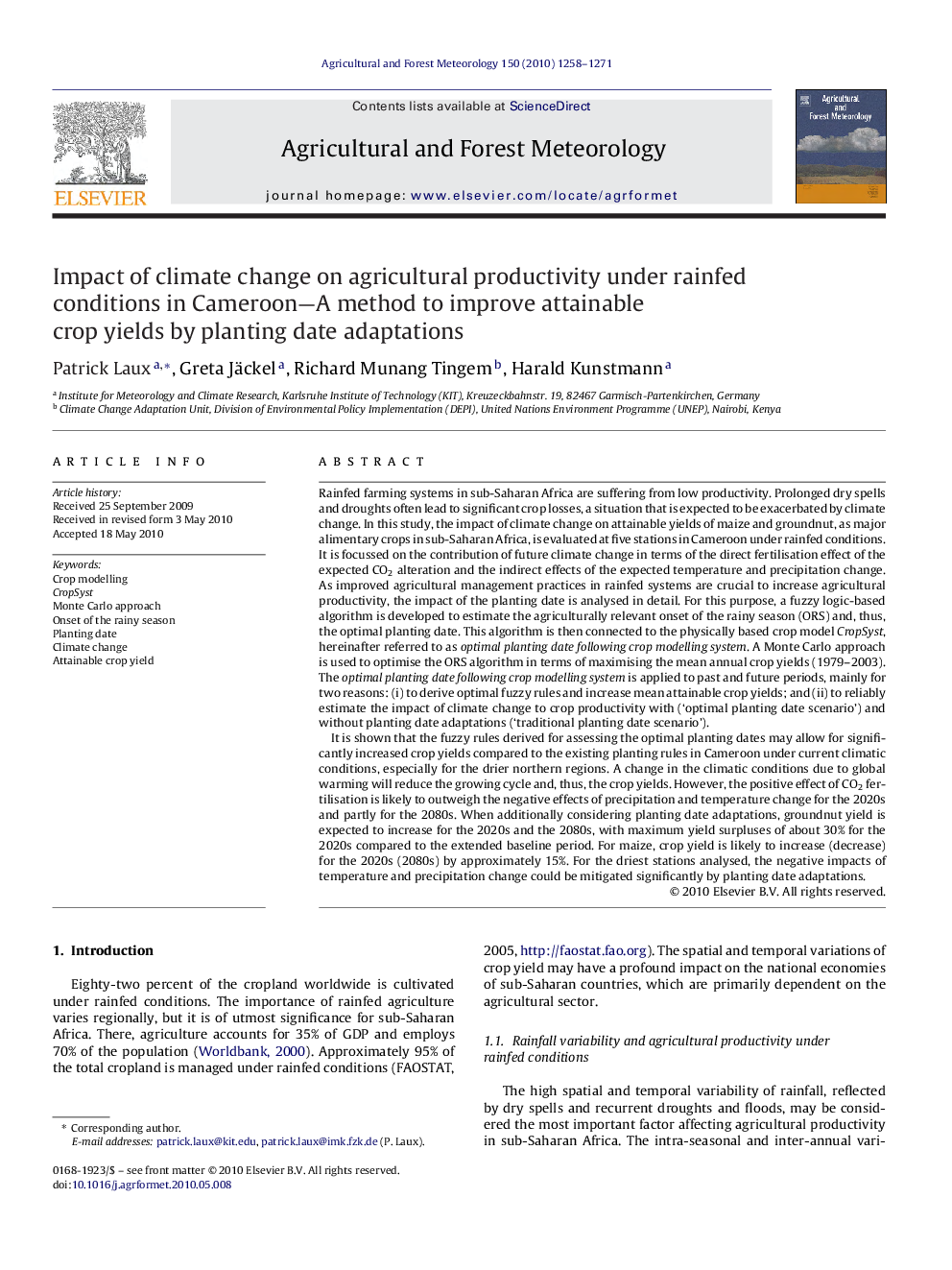| کد مقاله | کد نشریه | سال انتشار | مقاله انگلیسی | نسخه تمام متن |
|---|---|---|---|---|
| 82228 | 158383 | 2010 | 14 صفحه PDF | دانلود رایگان |

Rainfed farming systems in sub-Saharan Africa are suffering from low productivity. Prolonged dry spells and droughts often lead to significant crop losses, a situation that is expected to be exacerbated by climate change. In this study, the impact of climate change on attainable yields of maize and groundnut, as major alimentary crops in sub-Saharan Africa, is evaluated at five stations in Cameroon under rainfed conditions. It is focussed on the contribution of future climate change in terms of the direct fertilisation effect of the expected CO2CO2 alteration and the indirect effects of the expected temperature and precipitation change. As improved agricultural management practices in rainfed systems are crucial to increase agricultural productivity, the impact of the planting date is analysed in detail. For this purpose, a fuzzy logic-based algorithm is developed to estimate the agriculturally relevant onset of the rainy season (ORS) and, thus, the optimal planting date. This algorithm is then connected to the physically based crop model CropSyst, hereinafter referred to as optimal planting date following crop modelling system. A Monte Carlo approach is used to optimise the ORS algorithm in terms of maximising the mean annual crop yields (1979–2003). The optimal planting date following crop modelling system is applied to past and future periods, mainly for two reasons: (i) to derive optimal fuzzy rules and increase mean attainable crop yields; and (ii) to reliably estimate the impact of climate change to crop productivity with (‘optimal planting date scenario’) and without planting date adaptations (‘traditional planting date scenario’).It is shown that the fuzzy rules derived for assessing the optimal planting dates may allow for significantly increased crop yields compared to the existing planting rules in Cameroon under current climatic conditions, especially for the drier northern regions. A change in the climatic conditions due to global warming will reduce the growing cycle and, thus, the crop yields. However, the positive effect of CO2CO2 fertilisation is likely to outweigh the negative effects of precipitation and temperature change for the 2020s and partly for the 2080s. When additionally considering planting date adaptations, groundnut yield is expected to increase for the 2020s and the 2080s, with maximum yield surpluses of about 30% for the 2020s compared to the extended baseline period. For maize, crop yield is likely to increase (decrease) for the 2020s (2080s) by approximately 15%. For the driest stations analysed, the negative impacts of temperature and precipitation change could be mitigated significantly by planting date adaptations.
Journal: Agricultural and Forest Meteorology - Volume 150, Issue 9, 15 August 2010, Pages 1258–1271